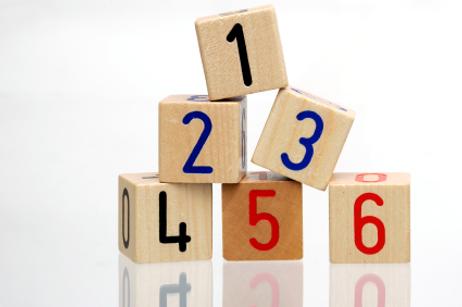You would think that finding out how one private school compares to another would be a no-brainer, right? In a consumer-driven age where we can find out information instantly, it is still very difficult and very tedious to find out how one private school compares to another. In other words, there is no easy answer to the question parents ask most often: “What is the best school in _______?”
Why is it so hard to get answers? For two reasons. First of all, the private schools themselves circle their wagons and will not participate in any survey which tries to rank schools. The private school community refuses to engage in the sort of annual publicity stunt which U.S. News and World Report and other publications put out for colleges and universities every year
Secondly, private schools don't receive any direct public funding. As a result, they are not subject to the kind of reporting requirements with which public schools must comply. NCLB (No Child Left Behind) does not apply to private schools, only to public schools.
The federal Department of Education does maintain data on private schools. The Private School Universe Survey (PSS) supplies statistical information about K-12 private schools. The PSS does not rank schools. It merely helps you determine how many Montessori schools are located in Montana. It is useful for policymakers and planners who need to know how many students go to private schools as opposed to public schools. It will not help you and me decide which private school is the right one for our children.
So, let's revisit that nagging question all of us ask: "What is the best school in _______?" Best for what? Some other parent's child? Best for hockey? Best equestrian facilities? Best pre-school curriculum? Best results in college acceptances? Exactly what are you trying to compare?
Once you answer that question, then you can begin to develop a list of schools that are best for you and your child's requirements. Finding schools that are the best fit for you and your child's requirements is much more important than any ranks and other comparisons.
Ranking private schools is not useful
Ranking private schools really is not useful. First of all, as noted above, there are no private school rankings. You can safely ignore the listings of private schools which appear in the press. They are beauty contests designed to get you to read the article or watch the segment on the news. I don't recall ever seeing one article or television report which purported to rank private schools that made any sense. Titillating reading, possibly. Sensible information? No.
If you want to know how one school compares to another, ask your educational consultant. She will point out the important facts and data to consider. But even she will not rank schools except in a casual, anecdotal way. Ranks are not important. The fit with your requirements is. Find a couple of schools which are good fits and you will have a happy child. That's all that matters.
The data is available
The information you and I need to drive our decisions in choosing a private school is publicly available from at least three sources.
1. The schools
You can research most private schools efficiently by exploring their websites. Information about what they teach, how they teach it and how much they charge for their services is usually published on their websites. As you do your research, make notes on your spreadsheet or database. After reviewing 30 or 40 private school websites, the schools and all those facts tend to blur together. Use our Checklist for Comparing Schools to keep track of your data.
2. Private School Review and Boarding School Review
This site and its sister site, Boarding School Review, have been designed to help you see at a glance how private schools compare in all the critical areas which matter to us parents. Numbers of students and faculty, numbers of students in each grade level, special programs, religious affiliation, number of Advanced Placement Courses, athletics offer, extracurricular activities, tuition information, and much more data are available.
Admissions Quest, The Association of Boarding Schools (TABS), and several national, state, and regional private school associations also maintain databases on their members and affiliated schools.
This video looks at the advantages of private school education.
3. Educational consultants
As you have probably realized by now, the data available about private schools is not aggregated in any one publicly and conveniently accessible area. Gathering it is a tedious process. This is one more reason why you should consider hiring an educational consultant. An experienced consultant has facts and figures at his fingertips. He also has the contacts to get the information which you need quickly. Based on his knowledge of your child and her requirements he can make recommendations about which schools will be a good fit for her.
What do you need to know?
What kind of facts do we need to know? Things like number of students, the number of faculty, faculty qualifications, average class size, number of AP courses offered, teaching methods, where graduates have matriculated for the last 3-5 years, faculty turnover, who the headmaster is, and how long he's been there, the size of the endowment and so on. Another consideration when choosing a boarding school is to ask how many day students the school has. Ideally, the ratio of day to boarders should be in a range of one day student to one hundred boarders.
As mentioned before you can certainly obtain much of this information from individual school websites. The downside to doing that is that it does take a bit of reading and research. If you have the time and organize your research well, you can certainly tackle this information-gathering project yourself.
This is another reason why I recommend that you consider using the services of an educational consultant. His intimate knowledge of schools and his expertise in finding out the information you need in order to make an informed decision will save you much time in the initial information-gathering stages. It will also save you much disappointment after you have applied to schools and realize, for example, that all the schools you applied to are very selective. Any educational consultant will gently guide you towards building a shortlist of schools that includes at least one school you really like but will also be one your child can get into.
Rankings do not matter
To be truthful, even if rankings of private schools were available, they wouldn't mean much anyway. Why? Because the most important part of the equation is whether the school is 'right' for your child. She is unique. Her needs and interests are best met by the school which is the best fit for those needs and interests, not the school which happens to send the most graduates to Harvard. The only way you will know whether a school fits or not is to go and actually visit the school, interview the staff and make your determination based on what you observe.
This video discusses ranking schools.
Choosing a private school is almost as arcane a science as buying a house. Perceived value and market value can be quite different things in the housing market. With private schools, you need to look beyond the fancy catalogs and impressive websites and determine whether the school offers programs and a community which suits your child's needs and yours. You know your child better than anyone. Find the school which is the best fit for her, not the school which is considered better than another one. The best private school is the school where your child will be happiest. Her happiness is really the only thing that matters, isn't it? Good luck!
Questions? Contact us on Facebook. @privateschoolreview





















